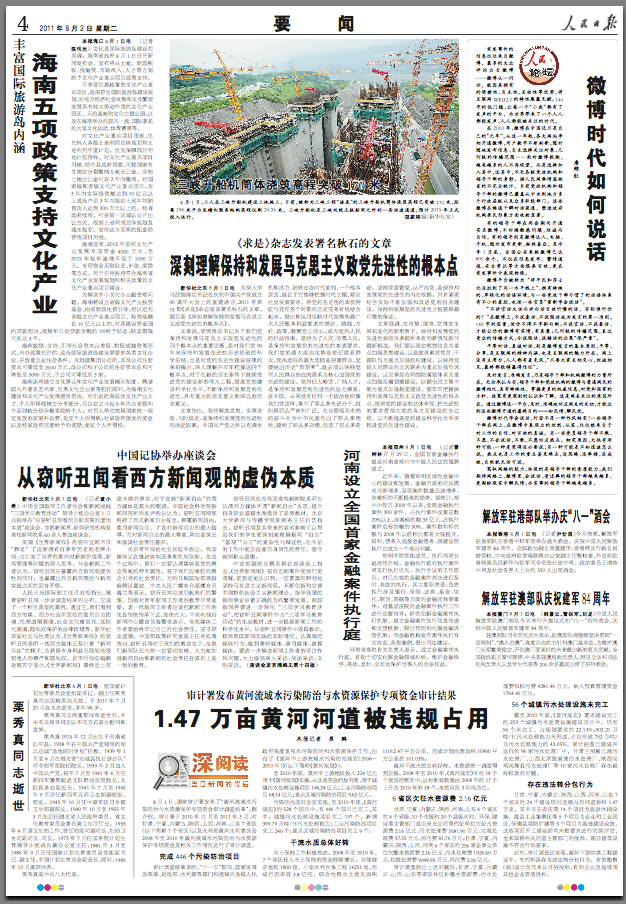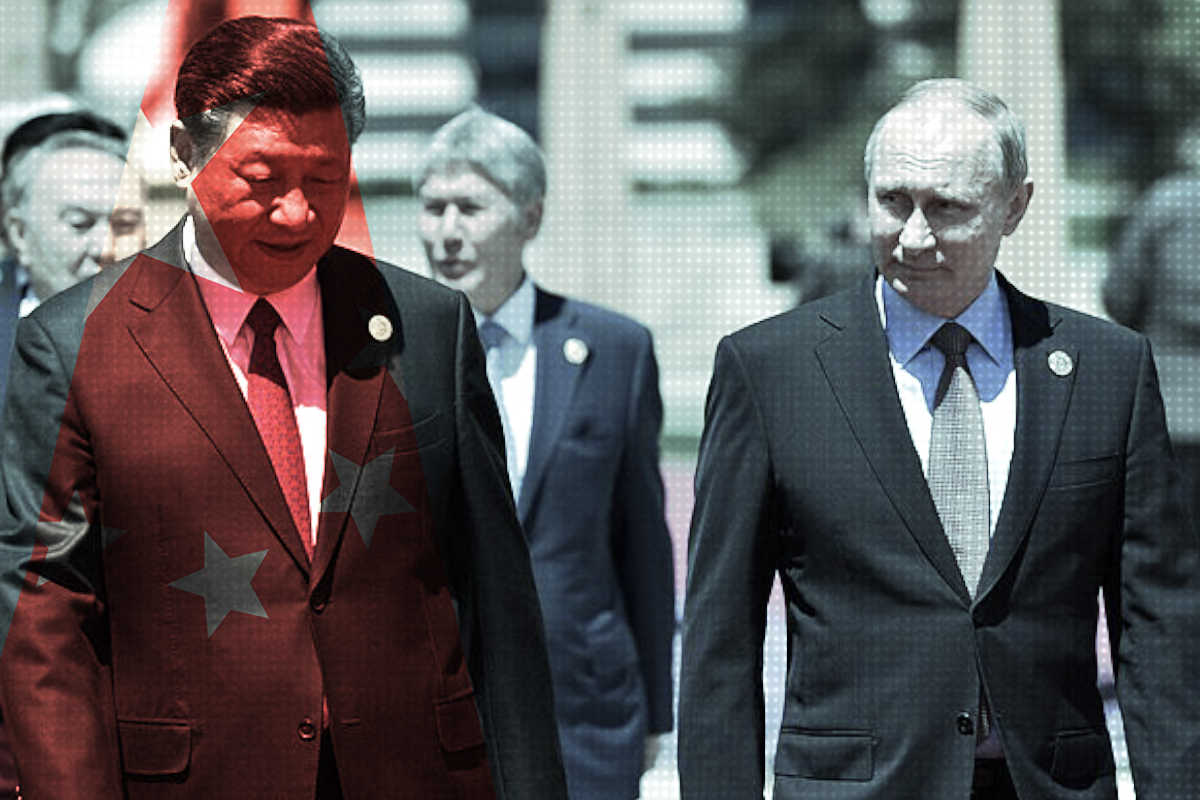Over the past week, as Chinese media and internet users alike pressed for the truth behind the tragic high-speed rail collision in Wenzhou on July 23, social media platforms like Sina Microblog (Weibo) and QQ Microblog played a crucial role.
While microblogs are providing a rich means for ordinary Chinese to access, share and comment on information, they are also influencing the discourse of government officials in important but less perceptible ways.
The following piece, published on page four of today’s official People’s Daily (vertical at upper-right), briefly addresses the way microblogs — and the internet more generally — are changing the way officials interact with the public, and of course public expectations.

“How to Speak in the Microblog Age“
People’s Daily
August 2, 2011
Tang Weihong (唐维红)
In sudden-breaking events, the information tends to come from microblogs [or “Weibo”], and most of the public commentary arises from microblogs . . . Ever since they stepped onto the stage, their convenience, independence, interactivity and other advantages have shown the characteristics of Web 2.0 beyond any doubt.
With a low threshold of 140 characters, every “tiny ego” has a platform through which to express their own voice, ushering in a era in the world in which every person can speak, and every person can be noticed.
In 2010, microblogs in China were just in the midst of their “inaugural year.” In that year, various major websites were competing to launch their own microblog platforms, and user numbers were constantly growing. Sending information at any time and at any place, choosing oneself who to follow, offering exponential [information] sharing . . . Faced the Weibo wave, more and more people are no longer looking on but are deciding to participate.
This does not exclude government offices and leaders from various levels. According to incomplete statistics from the Public Opinion Monitoring Center [of People’s Daily Online], weibo accounts run by government agencies and leaders cover many functional and administrative departments, from the central level down to the local level. These microblogs are opening up a channel of communication between the people and the government, and they are having visible results in creating an impression of closeness to the people.
Some leaders and cadres opened up microblogs in their real names during [this year’s] two meetings [of the National People’s Congress and the Chinese People’s Political Consultative Conference], speaking candidly and confidently, not fearing sensitive issues. Some leaders are even weibo celebrities, constantly updating their accounts by computer or mobile, and having large audiences. By the end of January this year, more than 800 police departments across the country had set up microblog accounts, not just releasing information, including policing alerts and safety information, but having a strong showing in the midst of sudden-breaking incidents.
“You must not utter official-speak and bluster, but must speak ordinary language for the people to understand you. Otherwise, who will listen?” On microblogs, not speaking official-speak and empty speech has become the first criterion. The 140-character limit means that you must speak concisely; only by spurning official-speak and pre-packaged formulas can you explain the facts and speak with meaning. In the context of multi-dimensional communication and direct communication with the public, the consequences of speaking falsehoods and saying the wrong thing are “very serious.”
It has been said that microblogs “place the public and Shakespeare on the same level.” The discourse environment of the grassroots, with its special characteristics, is very different from the pattern of discourse Party and government officials have grown accustomed to. And this means that many officials have had to “learn how to talk all over again.”
Equal and earnest dialogue is the basic principle by which microblogs operate. Equality and sharing is the fundamental spirit of the internet, and its charm. There is no rostrum on the internet. Everyone has a microphone. “So long as everyone interacts heart to heart, in a spirit of frankness, ultimately we can all earn trust.” [NOTE: This is a quote by a senior Zhejiang official, Cai Qi (蔡奇).]
Timely and accurate information release is the strength of microblogs maintained by leaders and [government] organs. Whether or not we admit it, microblogs maintained by Party and government leaders and organs have their own special character. They have hold of more authoritative information, and have a deeper understanding of the Party and the nation’s principles and policies, and this is why web users pay attention to them. Only by answering the concerns of web users in a timely and accurate manner through the platform of the microblog can the ultimate objective of opening these microblogs be reached — understanding public feeling, and alleviating public concerns.
. . .
Mastering the use of the internet shows a leader’s quality and ability. We hope that more and more leaders show their capacity for speech on the internet and on microblogs, and find popularity. We hope even more than more and more leaders address the conditions of the people in the real world, through real actions.




















